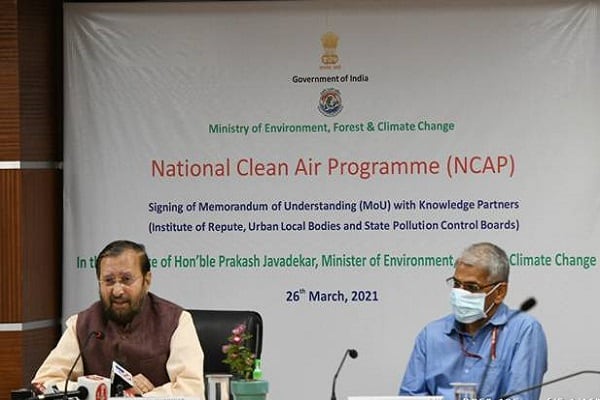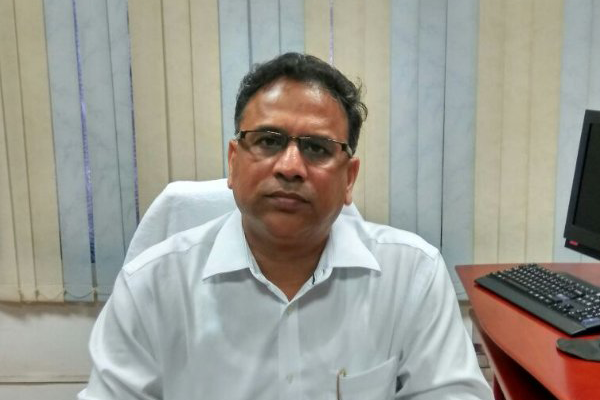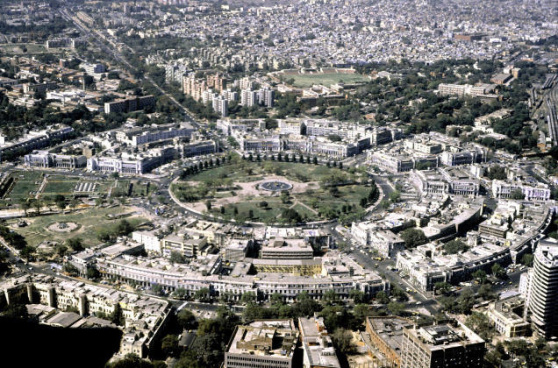
In an effort to take serious curbing measures against pollution in urban India, the State Pollution Control Boards, Urban Local Bodies (ULBs) and Institutes of Repute for 132 identified cities signed a Memorandum of Understanding (MoU), on March 26, for implementation of the National Clean Air Programme (NCAP). The signing of the pact was in the presence of Union Minister of Environment, Forest and Climate Change, Prakash Javadekar.
Addressing the occasion, the Minister said that concerted efforts are required by the State Governments and all concerned for improving air quality in the country towards realising the vision of ‘Swatch Bharat, Swatch Vayu’ and exhorted all to work in mission mode. “This initiative is in line with the vision of Prime Minister Narendra Modi of curbing air pollution by 20 per cent in the next four years in over 100 cities… it is not an easy task but a tough challenge which we all need to achieve together,” deliberated Javadekar.
Further, he urged the States to procure e-buses for public transport purpose sanctioned under the FAME Scheme. Regretting that despite the allocation of funds for 6000 e-buses to different cities across the country only 600 buses have been procured and are operational, he said if any city fails to utilise the funds sanctioned for procurement of e-buses the allocation will go to other cities.
The NCAP is a long-term, time-bound, national-level strategy to tackle the air pollution problem across the country in a comprehensive manner with targets to achieve a 20 per cent to 30 per cent reduction in Particulate Matter concentrations by 2024 (with 2017 as the base year).
Also Read: UP Metro raises awareness on prevention of Tuberculosis on World TB Day
The city action plans against pollution are prepared to control specific air pollution sources through multidimensional actions by bringing several implementation agencies together. The expansion of ambient air quality network, source apportionment studies, public awareness, grievance redressal mechanism and sector-specific action points are part of these action plans.
To ensure a successful implementation of the plan, the State agencies and technical supervision by expert Institutions of Repute need to work in tandem and show coordination and cooperation. This MoU will facilitate smooth and binding execution of planned actions in time targeted manner. A National Knowledge Network comprising leading air quality specialists has also been constituted as a technical advisory group to support activities under NCAP and guide local Institutes of Repute (IoRs) in conducting air quality researches.
(With inputs from PIB)





















